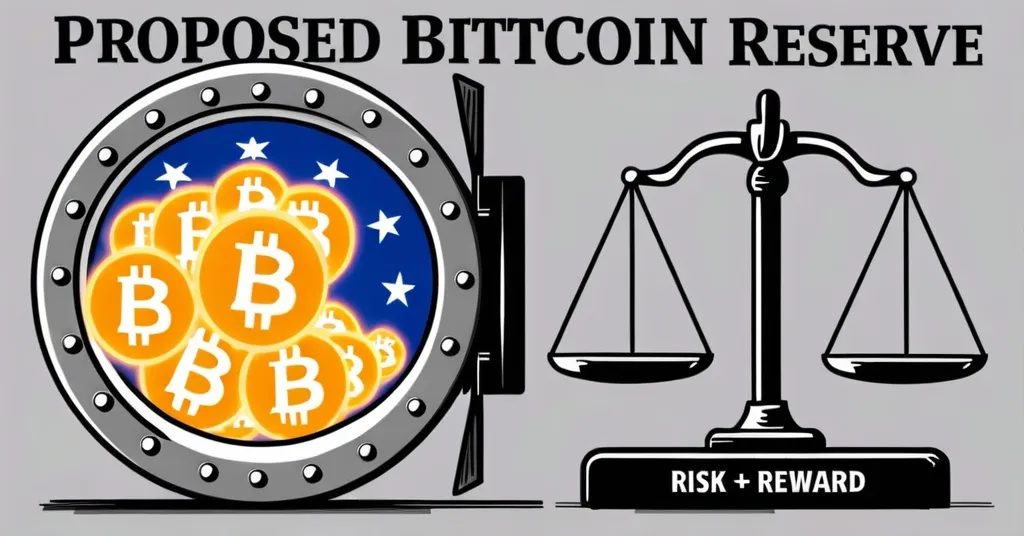Kentucky Proposes Bitcoin Reserve with HB376: Joins 15 Other States

Kentucky’s Bold Bet on Bitcoin: HB376 Proposes State Reserve
Kentucky, known for its bourbon and bluegrass, is now making headlines for its financial innovation with the introduction of HB376, a bill aimed at establishing a Bitcoin reserve. This move places Kentucky as the 16th US state to explore such a venture post-2024 presidential election, signaling a growing trend of state and national adoption of cryptocurrencies.
- Kentucky proposes Bitcoin reserve with HB376
- Up to 10% of state reserves could be invested in BTC
- 16th state to join the trend, but no successful implementation yet
- Global adoption grows with El Salvador and Bhutan leading the way
Kentucky’s Move
HB376 empowers the State Investment Commission to allocate up to 10% of the state’s excess reserves into cryptocurrencies, with a specific focus on Bitcoin. This isn’t a whimsical choice; the bill zeroes in on Bitcoin due to its massive market capitalization, currently soaring over $1.9 trillion, and its status as a non-stablecoin. For those new to the crypto space, a non-stablecoin is a cryptocurrency like Bitcoin that isn’t pegged to a stable asset like the dollar, making it subject to market fluctuations. At the time of writing, Bitcoin’s price was around $99,620, showing a modest 1.5% increase in the past 24 hours.
Market capitalization, or market cap, refers to the total value of all Bitcoin in circulation. It’s a key metric to gauge the size and stability of a cryptocurrency, and Kentucky’s focus on Bitcoin’s hefty market cap underscores its potential as a strategic reserve asset.
The bill’s text reads:
“The total amount of excess cash invested under subsection (9)(k), (l), and (m) of this section shall not, at the time of the investment is made, exceed ten percent (10%) of the total amount of excess cash invested under subsection (9) of this section.”
This provision highlights a cautious yet progressive approach to integrating Bitcoin into Kentucky’s financial strategy. For context, excess state reserves refer to surplus funds that the state can invest in various assets to enhance returns and economic stability.
State and National Trends
Kentucky isn’t alone in its crypto ambitions. States like Arizona, Alabama, Florida, Massachusetts, Missouri, New Hampshire, North Dakota, South Dakota, Ohio, Oklahoma, Pennsylvania, Texas, Utah, Kansas, and Wyoming have also proposed similar legislation. However, it’s crucial to note that none have yet successfully implemented a Bitcoin reserve. Utah’s HB230 bill, for instance, has passed the House and is now advancing to the Senate, showing some progress but not a done deal. For a bill to become law, it must pass both the House and the Senate, a process that can take time and involves multiple rounds of debate and potential amendments.
Global Perspective
Globally, the trend of adopting Bitcoin as a reserve asset is even more pronounced. El Salvador and Bhutan have already taken the plunge, establishing Bitcoin reserves. This move reflects their economic conditions and political motivations, seeking to leverage Bitcoin’s deflationary nature to enhance economic stability. Meanwhile, giants like the US and Brazil are seriously mulling over the establishment of national reserves, signaling a shift in perception from viewing Bitcoin as a speculative asset to recognizing its potential as a strategic reserve asset.
Challenges and Risks
But let’s not get blinded by the Bitcoin glitter. The optimism around Bitcoin as a reserve asset must be tempered with a dose of reality. Bitcoin’s volatility is legendary, with prices swinging wildly, which could pose significant risks for a state’s financial stability. Moreover, the high energy consumption associated with Bitcoin mining remains a contentious issue, sparking debates about its environmental impact. States and nations considering Bitcoin reserves must weigh these factors against the potential benefits like economic diversification and inflation hedging.
Recent strides in green mining offer some hope, but the debate rages on. As we champion the ideals of decentralization and financial freedom, we must also confront the dark side of crypto’s energy footprint and the potential for market manipulation that can rock the boat of any reserve.
Future of Bitcoin and Crypto
So, what does this all mean for the future of Bitcoin and the broader crypto landscape? It’s clear that the tide is turning, with more governments recognizing Bitcoin’s potential. Yet, the road to widespread adoption is fraught with technical, economic, and regulatory hurdles. As we watch this space, it’s crucial to stay informed and critical, questioning the narratives while also embracing the exciting possibilities that Bitcoin and other cryptocurrencies bring to the table.
The rise of decentralized finance (DeFi) and the impact on traditional financial systems add layers to this evolving narrative. Bitcoin’s journey from a fringe digital currency to a potential reserve asset is a testament to the power of decentralization and innovation. Yet, as always, with great power comes great responsibility—and a healthy dose of skepticism.
Key Takeaways and Questions
- What is the purpose of Kentucky’s HB376 bill?
The purpose of Kentucky’s HB376 bill is to establish a Bitcoin reserve by allowing the State Investment Commission to allocate up to 10% of excess state reserves into cryptocurrencies, specifically Bitcoin.
- Which cryptocurrency is targeted by Kentucky’s proposed bill?
Bitcoin (BTC) is targeted due to its market capitalization exceeding $750 billion and its non-stablecoin status.
- How many US states have proposed similar Bitcoin reserve bills?
Sixteen US states have proposed similar Bitcoin reserve bills.
- Has any state successfully implemented a Bitcoin reserve?
No state has successfully implemented a Bitcoin reserve yet, though Utah’s HB230 bill has passed the House and is advancing to the Senate.
- Which countries have already established Bitcoin reserves?
El Salvador and Bhutan have already established Bitcoin reserves.
- Are any countries considering national Bitcoin reserves?
Yes, the US and Brazil are considering the establishment of national Bitcoin reserves.
- What is the current market capitalization of Bitcoin?
Bitcoin’s market capitalization is over $1.9 trillion.
- What is the current price of Bitcoin?
At the time of writing, Bitcoin’s price was $99,620, up 1.5% in the past 24 hours.
As we continue to track these developments, it’s essential to keep an eye on both the potential and the pitfalls. Bitcoin’s journey from a fringe digital currency to a potential reserve asset is a testament to the power of decentralization and innovation. Yet, as always, with great power comes great responsibility—and a healthy dose of skepticism. The future of Bitcoin reserves hinges on balancing these dynamics, ensuring that the promise of economic diversification and financial freedom is met with the necessary scrutiny and regulation.



